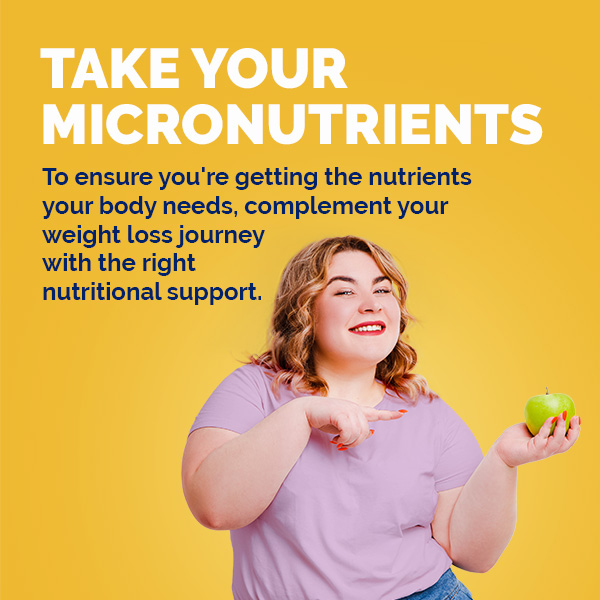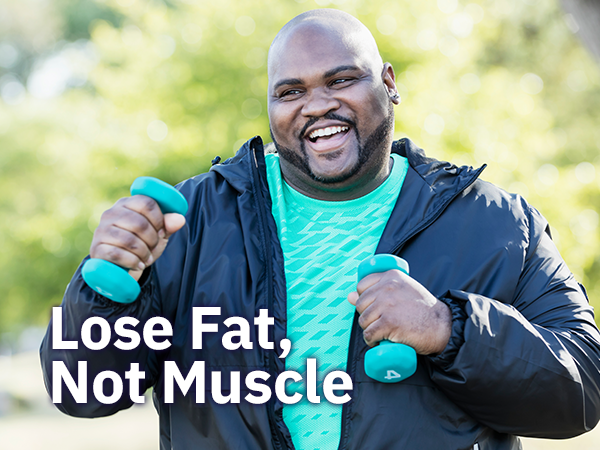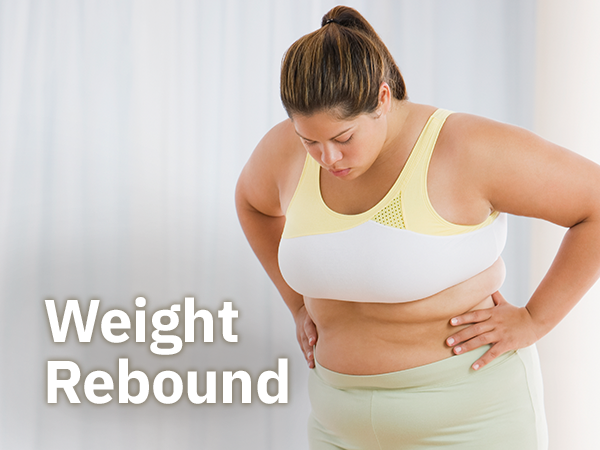

What’s the difference between micronutrients and macronutrients?
Most people know that our bodies need nutrients to support our normal biological functions. However, do you know the different kinds of nutrients we need?
The two major groups of nutrients the body needs are micronutrients and macronutrients. To put it simply, micronutrients are the vitamins and minerals we need in small quantities, and macronutrients are the nutrients we need in large quantities.
Even though micronutrients are needed in smaller quantities than macronutrients, they are a crucial part of the body’s health and wellness.
Frequently Asked Questions
If you’re not consuming enough micronutrient-rich foods, you could become micronutrient deficient. This can cause health problems such as anemia, malnutrition, muscle and bone pain, fatigue, depression, poor wound healing, as well as many others. Clearly, micronutrients have a big effect on the body’s overall health.
When taking weight loss medications, it’s important to be aware of the foods you’re eating so that you can avoid becoming micronutrient deficient. By eating a well-balanced diet, you can ensure that you’re meeting your daily nutritional needs.
If you aren't meeting all of your micronutrient needs through diet alone, you can try adding a multivitamin supplement to your daily regimen. Multivitamin supplements are a great way to help fill dietary gaps when you aren't meeting your nutritional needs through diet alone.
You can get micronutrients naturally through your diet by eating foods such as:
· Leafy greens (vitamin A, B9)
· Eggs and milk (vitamin D)
· Seaweed and fish (iodine)
· Oysters, beef, chicken, tofu (zinc)
· Citrus fruits, peppers, strawberries (vitamin C)
To help fill dietary gaps, try adding a multivitamin.By taking a once-a-day multivitamin, you can help meet your micronutrient needs to support your energy, metabolism, and overall wellbeing. To ensure you’re getting the nutrients your body needs, complement your weight loss journey with the right nutritional support.
Understanding micronutrients
What’s the difference between micronutrients and macronutrients?
Most people know that our bodies need nutrients to support our normal biological functions. However, do you know the different kinds of nutrients we need?
The two major groups of nutrients the body needs are micronutrients and macronutrients. To put it simply, micronutrients are the vitamins and minerals we need in small quantities, and macronutrients are the nutrients we need in large quantities.
Even though micronutrients are needed in smaller quantities than macronutrients, they are a crucial part of the body’s health and wellness.
Why are micronutrients so important?
While macronutrients like carbohydrates, fats and proteins give our bodies energy, micronutrients like vitamins and minerals provide us with nutrition that is necessary to keep our bodies functioning regularly. Micronutrients support your metabolism, muscle function and immune system.
What happens if I have unbalanced micronutrients?
If you’re not consuming enough micronutrient-rich foods, you could become micronutrient deficient. This can cause health problems such as anemia, malnutrition, muscle and bone pain, fatigue, depression, poor wound healing, as well as many others. Clearly, micronutrients have a big effect on the body’s overall health.
When taking weight loss medications, it’s important to be aware of the foods you’re eating so that you can avoid becoming micronutrient deficient. By eating a well-balanced diet, you can ensure that you’re meeting your daily nutritional needs.
If you aren't meeting all of your micronutrient needs through diet alone, you can try adding a multivitamin supplement to your daily regimen. Multivitamin supplements are a great way to help fill dietary gaps when you aren't meeting your nutritional needs through diet alone.
How do I improve my micronutrient intake?
You can get micronutrients naturally through your diet by eating foods such as:
· Leafy greens (vitamin A, B9)
· Eggs and milk (vitamin D)
· Seaweed and fish (iodine)
· Oysters, beef, chicken, tofu (zinc)
· Citrus fruits, peppers, strawberries (vitamin C)
To help fill dietary gaps, try adding a multivitamin.By taking a once-a-day multivitamin, you can help meet your micronutrient needs to support your energy, metabolism, and overall wellbeing. To ensure you’re getting the nutrients your body needs, complement your weight loss journey with the right nutritional support.




